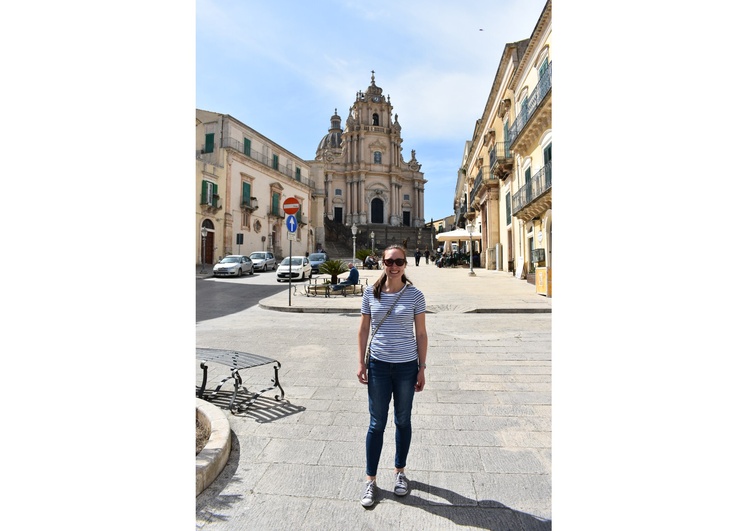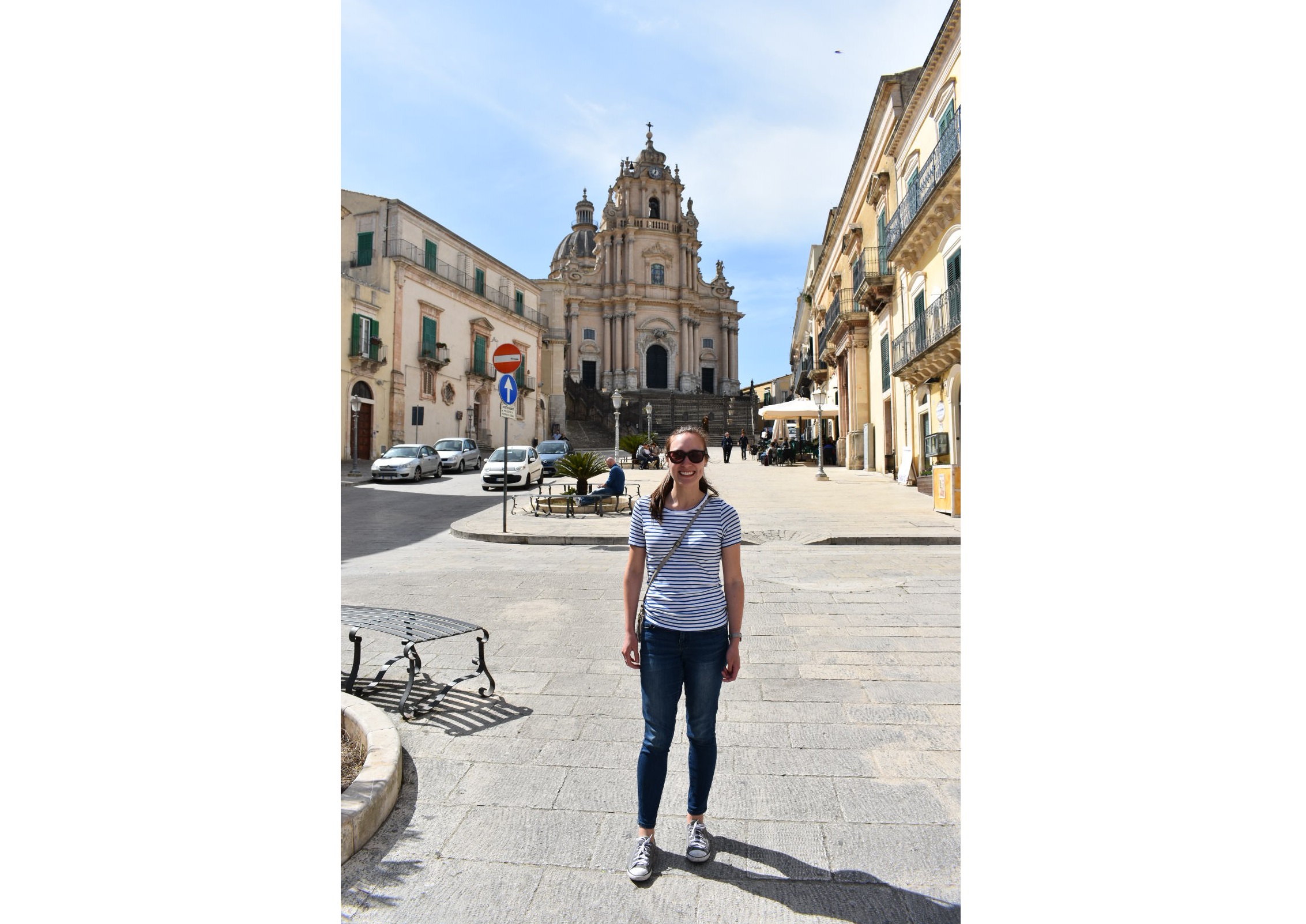For a long time, languages were just a hobby for Rebecca Howie.
She started with French in primary school, developed a passion for it in high school and continued to study it at university, where she completed an engineering degree and language diploma.
Once she entered the workforce, in a technical field where she didn’t have the opportunity to speak French, she realised how much she missed languages and began learning German.
And she didn’t stop there.
In fact, it was Inspector Montalbano – a character created by Italian writer Andrea Camilleri, and protagonist of the popular television series – who made her discover Italian (and Sicilian) and led her to Sicily for her honeymoon.
Today, Rebecca works for the Alliance Française in Melbourne and is the founder of Irregular Endings, a company that produces and prints greeting cards, calendars and notepads in Italian, German, French and Spanish.
In collaboration with another language lover, Penny, of Lingo Mama, she also established Language Lovers AU, an online reference point for language enthusiasts and polyglots of all levels.
Interesting content, podcasts and local events are posted regularly on its website and social media pages.
So, what’s the secret to learning another language in your spare time?
Howie believes the most effective way to consolidate content learnt in lessons is to follow social media accounts in the language in question (such as the Instagram accounts Italiano Automatico and Easy Italian Learning), and watch movies and TV series in the language.
Social media allows students to incorporate conversation into their daily life while casually checking their Instagram between tasks, and television and film offer the opportunity immerse themselves in the language from the comfort of their couch.
“Watching TV doesn’t feel like study; you can make it into a learning experience that doesn’t feel like one,” Howie said.
Furthermore, it’s suitable for all ages and at all levels: by watching an episode of Inspector Montalbano or a cartoon, students can analyse a variety of grammatical, lexical and cultural elements.
Television also allows students to explore a variety of accents, language registers and contexts, while the conversation is natural and not as forced as it can be in educational resources.
“I’ve always enjoyed watching foreign-language television; it’s the reason I get interested in a language or what keeps me going,” Howie said.
“My husband and I decided to go on our honeymoon to Sicily because we were watching Inspector Montalbano and wanted to visit the locations where the series was filmed.”
Howie soon began studying Italian, deepening her knowledge with other productions such as the film The Mafia Kills Only in Summer and the series Ordinary Heroes.
Today, television programs and films in their original language are highly accessible thanks to streaming platforms and YouTube.
“Over 10 years ago when I was in high school, you used to get DVDs,” Howie said.
“There were only limited places where you could find them, at least in Melbourne, and usually they only had English subtitles.”
The content available nowadays is abundant and often free, and viewers can easily add subtitles in both Italian and English, an important tool for students.
There are also extensions that further facilitate the use of this material with classes for different levels, such as Language Learning with Netflix, a Google Chrome extension that allows viewers to have two sets of subtitles at the same time – the original language and a second language of choice.
For those who want to “play it safe” or test their skills, they can also watch films, cartoons or series dubbed in Italian, an exercise that can be a lot of fun and allows students to focus on the language, given that the story, characters and dialogues are already familiar.
With a touch of inquisitiveness and perseverance, great results are guaranteed!












